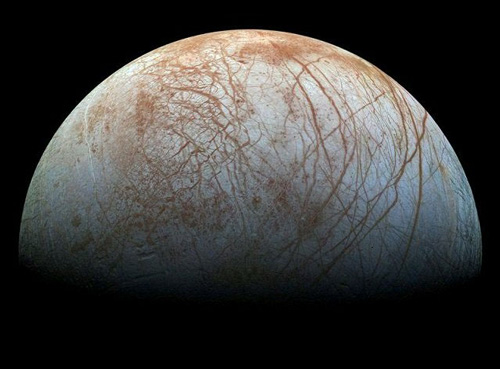Web Desk
Scientists have figured out how the subsurface ocean on Jupiter’s moon Europa may have formed and determined that this vast expanse of water may have been able to support microbial life in the past. Europa, with an ocean hidden beneath a thick shell of ice, long has been viewed as a potential habitat for extraterrestrial life in our solar system, alongside other candidates such as Mars and Saturn’s moon Enceladus. A new study presented on Wednesday at a geoscience conference underscores its potential. Europa’s ocean may have formed after water-rich minerals ejected their water thanks to heating caused by the decay of radioactive elements in its interior early in its history, the researchers found.









